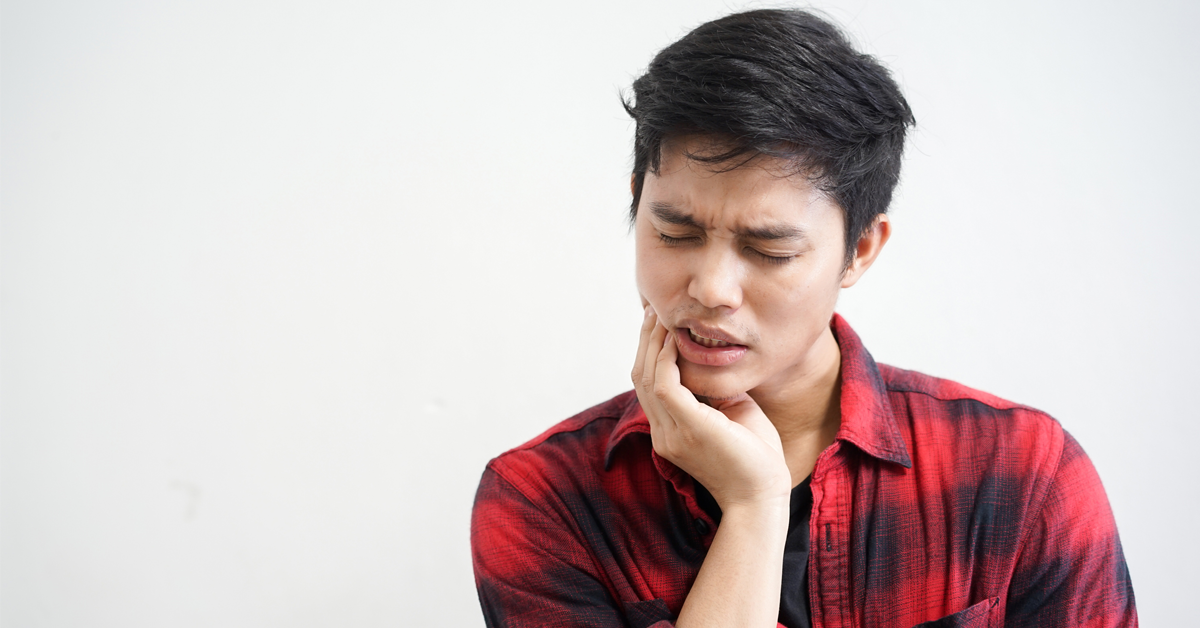
Have you ever found yourself clenching your jaw during the workday? Or has your partner mentioned that you grind your teeth at night? If these sound like common occurrences to you, you may be dealing with bruxism.
Though teeth-grinding may not sound awful on the surface, bruxism can have a significant impact on several facets of your health depending on how severe it is. So today, we’re going to take a deep dive into bruxism and cover everything from what causes it to how it is treated.
What is bruxism?
Not all involuntary movement in our jaws is indicative of bruxism. For example, clenching our jaws and grinding our teeth are common involuntary reactions to stress. However, when they consistently occur outside of a stressor, that is bruxism.
It can happen when we are awake (awake bruxism) and if that is the case, you will likely catch yourself doing it. But in most cases, the tooth-grinding happens when you are asleep (sleep bruxism) and you probably won’t know it is happening unless someone like your partner points it out.
Though tooth grinding and jaw clenching are the two most common bruxism symptoms, you may experience one or more of these as well:
- Worn tooth enamel
- Teeth that are flattened, chipped or loose
- Increased tooth pain or sensitivity
- Soreness in the jaw, face or neck
- Headache
- Pain that resembles an earache
- Disrupted sleep
What causes bruxism?
According to the Sleep Foundation, sleep bruxism can be triggered by several factors. However, the most significant are stress and anxiety. Since tooth-grinding is a common stress reaction, that behavior can also carry over into our sleep.
Other factors have been linked to bruxism as well, including:
- Genetics
- Changes in sleep patterns
- Snoring
- Sleep disrupters like smoking, alcohol and caffeine
- Depression
- Gastroesophageal reflux disease (GERD)
What kind of impact does bruxism have on your health?
As you might imagine, bruxism can wreak havoc on your teeth if not treated. They may become painful, eroded or loose, which can bring about the need for significant dental work. What’s more, if you have dental crowns, fillings or implants, they can also be damaged by bruxism.
But tooth grinding can also cause temporomandibular joint (TMJ) problems, such as difficulty chewing, jaw pain and uncomfortable clicking and popping noises. And if you share a bed partner, the noise from grinding can also affect their sleep.
The good news is that not everyone experiences severe symptoms and the force of the tooth grinding will vary from person to person. But if you suspect you may be experiencing bruxism, your dentist or doctor can diagnose it.
How do you treat bruxism?
Once you sit down with your doctor or dentist, they may recommend the use of a mouthguard. That’s right, they aren’t just for athletes! A mouthguard can also help cushion your teeth to keep them from grinding together, preventing potential damage to your oral health.
Your dentist can custom-make one to your jaw’s size and shape, which is a good option for preventative care or those with more troublesome grinding. They are also available over-the-counter in standard sizing, which can work for those with minor grinding.
In many cases, a mouthguard may be enough. But your dentist will be able to determine if you need a procedure to adjust the level of your bite surface, like reductive coronoplasty.
Another treatment angle to look at is stress reduction. Since stress is such a big factor in bruxism, you may also benefit from techniques that reduce stress, such as teletherapy, exercise and setting personal boundaries.
The bottom line: Bruxism can range in severity, but its potential long-term consequences should not be ignored. Talk with your dentist or doctor about ways to treat tooth-grinding and evaluate how you can lower the stress in your life.
